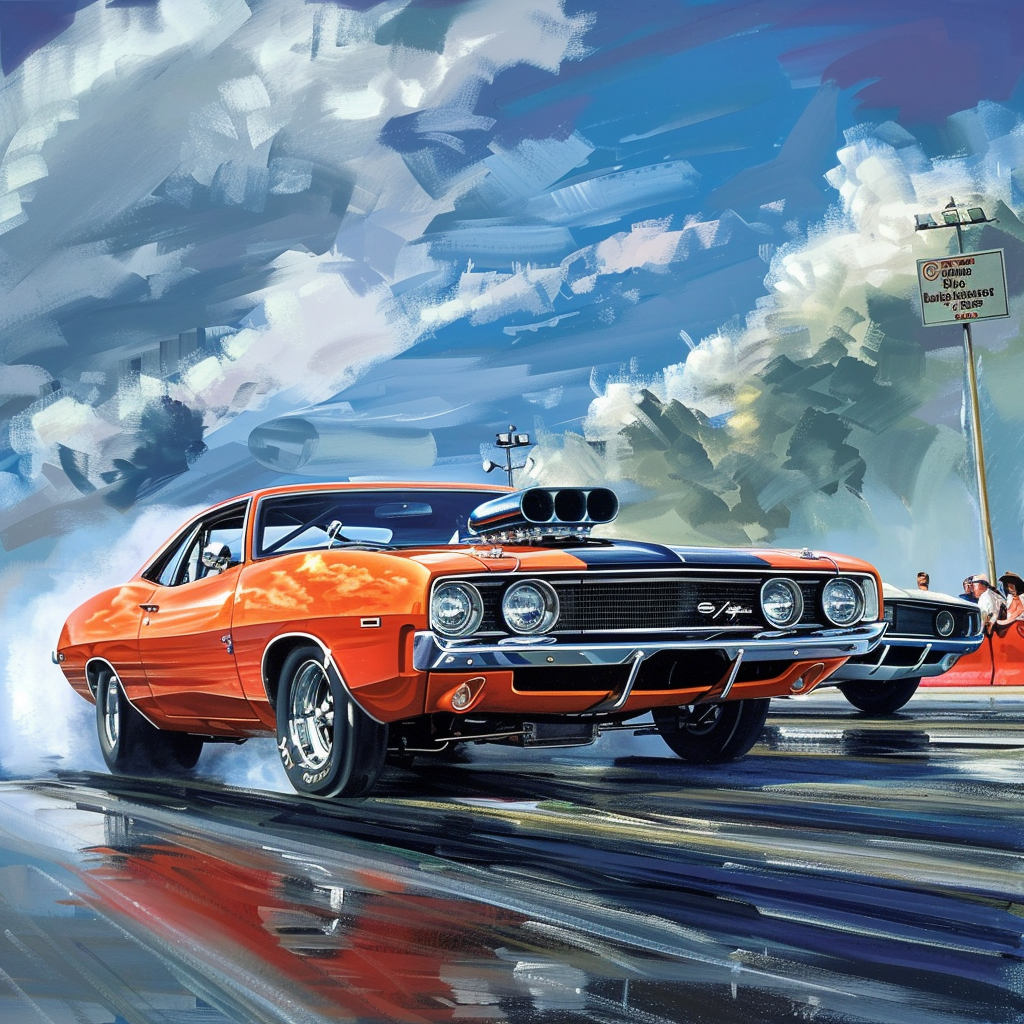Hitting the Tracks Across the States With Mike Savage
Muscle car racing is an exhilarating world where raw power, speed, and skill converge.
This motorsport’s history is deeply rooted in American car culture, celebrating the might of high-performance vehicles and the daring spirit of their drivers.
Two prominent forms of muscle car racing are drag racing and track events, each offering unique thrills and challenges.
The Origins of Muscle Car Racing
The term “muscle car” typically refers to American-made two-door sports coupes with powerful engines designed for high performance. These cars gained popularity in the 1960s and 1970s, with iconic models like the Ford Mustang, Chevrolet Camaro, Dodge Charger, and Pontiac GTO. Muscle car racing began as an underground activity, with enthusiasts competing on public roads and isolated strips. Over time, the need for safety and formal competition led to the establishment of organized racing events.
Drag Racing: Straight-Line Speed
Drag racing is a straight-line competition where two cars race from a standing start over a short distance, usually a quarter-mile (1,320 feet). This sport is a test of acceleration and driver skill, as participants strive to cover the distance in the shortest possible time.
Notable Drag Racing Locations
Pomona Raceway (Auto Club Raceway), California
Home to the NHRA Winternationals and the NHRA Finals, Pomona Raceway is a historic venue in drag racing, known for its fast track and enthusiastic crowds.
Indianapolis Raceway Park (Lucas Oil Raceway), Indiana
This venue hosts the NHRA U.S. Nationals, one of the most prestigious drag racing events in the world. The track’s long history and challenging conditions make it a favorite among racers.
Gainesville Raceway, Florida
Known for the NHRA Gatornationals, Gainesville Raceway is a prime location for breaking records due to its excellent track surface and favorable weather conditions.
Track Events: The Art of Handling
While drag racing focuses on straight-line speed, track events (or circuit racing) test a car’s handling, braking, and acceleration over a winding course. These races take place on closed tracks with various turns and elevation changes, demanding both vehicle performance and driver expertise.
Notable Track Racing Locations:
Daytona International Speedway, Florida
Famous for the Daytona 500, this track also hosts various muscle car events. Its combination of high-speed straights and challenging turns makes it a versatile and iconic racing venue.
Road America, Wisconsin
This four-mile road course is one of the oldest and most challenging tracks in the U.S. Known for its scenic layout and diverse corners, Road America is a favorite for muscle car track events.
Laguna Seca, California
Renowned for the “Corkscrew,” a challenging set of turns with a dramatic elevation change, Laguna Seca is a prestigious venue that tests the limits of both cars and drivers.
The Evolution of Muscle Car Racing
Over the decades, muscle car racing has evolved significantly. Technological advancements have improved vehicle performance, safety, and reliability.
It’s important to note the difference between muscle cars and sports cars.
Modern muscle cars, while still celebrating the spirit of their predecessors, incorporate cutting-edge engineering to compete at the highest levels.
Sanctioning bodies like the National Hot Rod Association (NHRA) and the Sports Car Club of America (SCCA) have played crucial roles in regulating and promoting muscle car racing. These organizations ensure fair competition and safety standards, helping the sport grow and attract new fans and participants.
The Culture and Community
Muscle car racing is more than just a sport; it’s a vibrant community. Events are often family-friendly, with car shows, swap meets, and social gatherings adding to the appeal. Enthusiasts share a deep passion for automotive history, engineering, and the thrill of competition. This camaraderie extends beyond the track, fostering lifelong friendships and a shared appreciation for the artistry and power of muscle cars.
Conclusion
Muscle car racing, encompassing the adrenaline-pumping action of drag racing and the intricate skill of track events, remains a cornerstone of American motorsport.
From historic venues like Pomona Raceway to the demanding turns of Laguna Seca, the sport celebrates the legacy of powerful cars and daring drivers.
As technology advances and new generations of enthusiasts emerge, muscle car racing will continue to captivate and inspire, honoring its rich history while driving boldly into the future.
ABOUT SAVAGE OF NEW CANAAN, CT
Mike Savage from New Canaan is the Founder of 1-800 Accountant that helps businesses with their accounting services and needs through cutting-edge technology and customer support. He runs the company alongside CEO Brendon Pack.
In his spare time, Savage enjoys creating unique koi ponds, collecting Michael Jordan sneakers, vintage Lego sets, and admiring unique pop art. He and his wife also spearhead the Savage-Rivera foundation to help impoverished families in Honduras.
